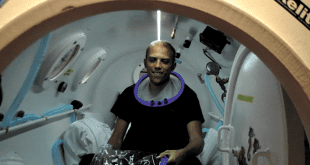By North Star Wealth Advisors
 Estate Planning – So where does one start?
Estate Planning – So where does one start?
Realize that estate planning can often be a complex undertaking and that the development of a well-
formed plan can make a big difference in what is left to your heirs. This article will focus on a process for you to consider in the development of your plan and some concepts that may be helpful.
First, familiarize yourself with the basic process, important concepts and the tools, tactics and stratagies that are available to help you establish the best possible plan to meet your needs. These will include wills, trusts, powers of attorney and health care proxies. These are just a few of the basics. What you will use will depend upon your individual circumstances.
Determine what is important about your estate plan, what are trying to get accomplished? What you want to have happen? Do you have a special need, or special request that you wish to incorporate into your plan? Write these out. This will be helpful when you meet with your estate planning team.
After you’ve learned the basic concepts of estate planning, and determined what you want to have happen, consider the people who will help carry out your wishes.
Make it a team effort
Start by establishing your estate planning team. It is important to work with an attorney and possibly a tax advisor, as well as a financial advisor professional, one who will take on the role of a consultant. The attorney’s role will include guiding you through the creation of fundamental estate planning documents. These may include a will, health care proxy, and durable power of attorney. The tax advisor can help you with any associated tax issues. The financial advisor professional should help in the coordination of the team and bringing all your resources together into a well laid out plan. Work with your team and think through any issues that you may encounter. They can help you articulate your wishes, avoid mistakes, and minimize taxes and expense. They can also be helpful if any adjustments are needed to your plan.
Next consider the people who will help carry out your wishes for your estate. These may include the executor of your will, guardians for minor children, health care, and living will surrogate. The names of these documents, their validity, and how they are used vary from state to state. The basic ideas, however, are to 1) appoint a person you trust to act on your behalf for health care decisions when you cannot, and 2) ensure that your intentions are well understood. There is a lot to consider when selecting those who will carry out your wishes.
Next select those who you will grant the authority to make legal and financial decisions, in case you are unable to do so, these are better known as a Power of Attorney and Durable Powers of Attorney. A power of attorney can apply to all your affairs or may be limited in scope. These must be established while you still have the mental capacity to do so.
Next select any trustees and successor trustees that may be needed. The trustee acts as the legal owner of trust assets, and is responsible for managing the assets, ongoing administration and tax filings for the trust, and making distributions to your beneficiaries according to the terms of the trust.
Sometime the use of a corporate trustee may be needed to carry out your wishes.
An often-overlooked document is the Post Mortem Letter. The post-mortem letter, a simple and practical estate planning tool you can put together yourself. This important letter tells your executor and survivors where to locate everything they need to carry out your instructions.
Having Crucial Conversations
When it comes to estate planning, there are often significant financial and personal benefits to being transparent about your estate and your wishes. You will need to have conversations with all the parties involved. This can be delicate as most people are not receptive to having conversations about end of life and the decisions that are needed. Having conversations with the family and the potential estate team will help you make better decisions as to who should handle your affairs in case of death and/or incapacitation.
It will also provide them a better understanding as to your intentions and plans for your estate. Lack of clear communication during estate planning can result in uncertainty and conflict for them in an already difficult time.
Estate Planning Strategies
In this phase of your estate planning it is time to consider what strategies to utilize. Since there are many to consider look at this by making two list first.
• List out your beneficiaries and their relationship to you as how assets transfer is affected by their relationship to you.
• List of your assets by the type of asset it is, as different assets pass on different than others. Your unique mix of assets will determine the best course of action for each asset type.
Conducting Periodic Reviews
We believe it is best to review your estate plan at regular frequency. This can be done in coordination with reviewing your financial plan, or for estate planning specifically, you may wish to do a detailed review every three to five years or when there is a life event that warrants it.
As you can see, estate planning can be complex, yet should be kept as simple as possible.
If you would like more information, or to schedule a complimentary consultation, contact us at 813-793-7048 or by email at dominick@northstarwealthadvisor.com.
Information in this article is not intended to constitute legal, tax, accounting, or investment advice, nor an opinion regarding the appropriateness of any investment, nor a solicitation of any kind.
Securities and advisory services are offered through Calton & Associates, Inc. Member FINRE/SIPC. North Star Wealth Advisors and Calton & Associates are separate entities.
North Star Wealth Advisors
14614 Village Glen Cir Tampa, FL 33618
813-793-7048
www.northstarwealthadvisor.com
Check Also
How Nancy Went from Excruciating Neck Pain All Day, Everyday….to No Pain!
Millions of people are suffering from chronic pain. Some resort to surgery and some may …
 Central Florida Health and Wellness Magazine Health and Wellness Articles of the Villages
Central Florida Health and Wellness Magazine Health and Wellness Articles of the Villages



